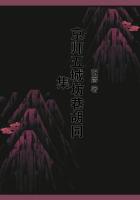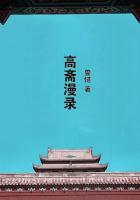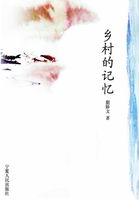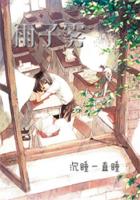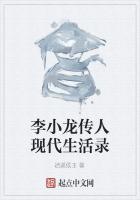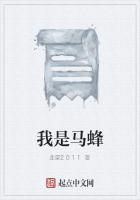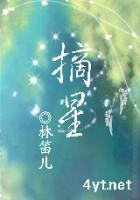John the Baptist, but we cannot doubt that the celebration dates from a time long before the beginning of our era. The summer solstice, or Midsummer Day, is the great turning-point in the sun's career, when, after climbing higher and higher day by day in the sky, the luminary stops and thenceforth retraces his steps down the heavenly road. Such a moment could not but be regarded with anxiety by primitive man so soon as he began to observe and ponder the courses of the great lights across the celestial vault; and having still to learn his own powerlessness in face of the vast cyclic changes of nature, he may have fancied that he could help the sun in his seeming declinecould prop his failing steps and rekindle the sinking flame of the red lamp in his feeble hand. In some such thoughts as these the midsummer festivals of our European peasantry may perhaps have taken their rise. Whatever their origin, they have prevailed all over this quarter of the globe, from Ireland on the west to Russia on the east, and from Norway and Sweden on the north to Spain and Greece on the south. According to a medi?val writer, the three great features of the midsummer celebration were the bonfires, the procession with torches round the fields, and the custom of rolling a wheel. He tells us that boys burned bones and filth of various kinds to make a foul smoke, and that the smoke drove away certain noxious dragons which at this time, excited by the summer heat, copulated in the air and poisoned the wells and rivers by dropping their seed into them; and he explains the custom of trundling a wheel to mean that the sun, having now reached the highest point in the ecliptic, begins thenceforward to descend.
The main features of the midsummer fire-festival resemble those which we have found to characterise the vernal festivals of fire. The similarity of the two sets of ceremonies will plainly appear from the following examples.
A writer of the first half of the sixteenth century informs us that in almost every village and town of Germany public bonfires were kindled on the Eve of St. John, and young and old, of both sexes, gathered about them and passed the time in dancing and singing. People on this occasion wore chaplets of mugwort and vervain, and they looked at the fire through bunches of larkspur which they held in their hands, believing that this would preserve their eyes in a healthy state throughout the year. As each departed, he threw the mugwort and vervain into the fire, saying, May all my ill-luck depart and be burnt up with these. At Lower Konz, a village situated on a hillside overlooking the Moselle, the midsummer festival used to be celebrated as follows. A quantity of straw was collected on the top of the steep Stromberg Hill. Every inhabitant, or at least every householder, had to contribute his share of straw to the pile. At nightfall the whole male population, men and boys, mustered on the top of the hill; the women and girls were not allowed to join them, but had to take up their position at a certain spring half-way down the slope. On the summit stood a huge wheel completely encased in some of the straw which had been jointly contributed by the villagers; the rest of the straw was made into torches. From each side of the wheel the axle-tree projected about three feet, thus furnishing handles to the lads who were to guide it in its descent. The mayor of the neighbouring town of Sierck, who always received a basket of cherries for his services, gave the signal; a lighted torch was applied to the wheel, and as it burst into flame, two young fellows, strong-limbed and swift of foot, seized the handles and began running with it down the slope. A great shout went up. Every man and boy waved a blazing torch in the air, and took care to keep it alight so long as the wheel was trundling down the hill. The great object of the young men who guided the wheel was to plunge it blazing into the water of the Moselle; but they rarely succeeded in their efforts, for the vineyards which cover the greater part of the declivity impeded their progress, and the wheel was often burned out before it reached the river. As it rolled past the women and girls at the spring, they raised cries of joy which were answered by the men on the top of the mountain; and the shouts were echoed by the inhabitants of neighbouring villages who watched the spectacle from their hills on the opposite bank of the Moselle. If the fiery wheel was successfully conveyed to the bank of the river and extinguished in the water, the people looked for an abundant vintage that year, and the inhabitants of Konz had the right to exact a waggon-load of white wine from the surrounding vineyards. On the other hand, they believed that, if they neglected to perform the ceremony, the cattle would be attacked by giddiness and convulsions and would dance in their stalls.
Down at least to the middle of the nineteenth century the midsummer fires used to blaze all over Upper Bavaria. They were kindled especially on the mountains, but also far and wide in the lowlands, and we are told that in the darkness and stillness of night the moving groups, lit up by the flickering glow of the flames, presented an impressive spectacle. Cattle were driven through the fire to cure the sick animals and to guard such as were sound against plague and harm of every kind throughout the year. Many a householder on that day put out the fire on the domestic hearth and rekindled it by means of a brand taken from the midsummer bonfire. The people judged of the height to which the flax would grow in the year by the height to which the flames of the bonfire rose; and whoever leaped over the burning pile was sure not to suffer from backache in reaping the corn at harvest. In many parts of Bavaria it was believed that the flax would grow as high as the young people leaped over the fire. In others the old folk used to plant three charred sticks from the bonfire in the fields, believing that this would make the flax grow tall.


